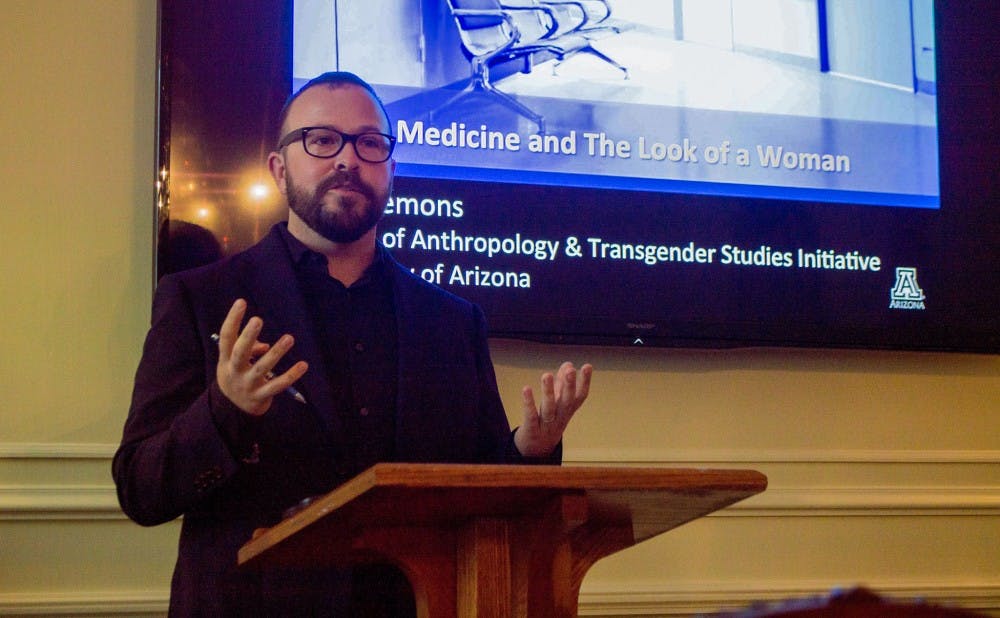At a lecture Tuesday, a medical anthropologist from the University of Arizona discussed the process of facial feminization surgery in the context of the United States’ healthcare system.
Eric Plemons, assistant professor of anthropology at Arizona, presented key findings from his first book, "The Look of a Woman", which was published by Duke University Press earlier this year. The book is based on a year of research into the work of two facial feminization surgery (FFS) specialists, including craniofacial surgeon Douglas Ousterhout, who developed the form of reconstructive surgery in the early 1980s.
The book was recently awarded the Ruth Benedict Prize by the Association for Queer Anthropology.
Trans medicine has been shaped by debates about medical authority, who is worthy of medical care and what might count as legitimate medical need. Plemons explained that FFS is a set of bone and tissue reconstructive processes that aims to make trans women’s faces more feminine.
“You don’t walk down the street and look in everyone’s pants before you decide what their sex is—you look at their face,” Plemons said, quoting Ousterhout’s explanation of the value of FFS.
FFS involves the alteration of physical features which are traditionally regarded as masculine in favor of a more feminine affect. This can include reducing the size of a trans woman’s brow, burring and sawing off the wide mandibles on male skulls, shaping a square chin to become oval-shaped, making the lips more full or removing cartilage from the Adam’s apple. The time-intensive procedures can be implemented in 11-hour stretches.
“The assertion that facial reconstruction constitutes an enactment of surgical womanhood relies on a particular configuration of trans therapeutics—a claim about how, why and through what means facial surgery is good trans medicine,” Plemons said.
FFS as a practice blurs the boundaries between cosmetic and reconstructive surgery, he added, which can present challenges in terms of seeking medical insurance coverage. Plemons recounted feedback that he received from peer reviewers of one of his papers which accepted the efficacy and therapeutic benefit of FFS, but pushed back on its medical necessity.
The reviewers suggested that determining whether FFS should be covered by medical insurance was too complex, as it would be too difficult to identify facial features as masculine or feminine, Plemons said. The reviewers suggested that he revise his paper to “better reflect the constraints of insurance companies”—a point he raised to illustrate the challenges that trans women experience in their pursuit of obtaining the surgery.
While Plemons described trans women who found FFS to be a singularly cathartic and self-actualizing experience, he acknowledged in a question-and-answer session afterwards that many women have considered the procedure "BS."
Members of the audience generally said that they found Plemons’ lecture educational and informative.
Sophomore Wandi Che added that although parts of the lecture were complex and confusing, she recognized the overall value of the lecture’s subject.
Classmate Melanie Carmejo Coffigny, who also attended the talk, said she thought the topic was important matter for LGBTQ+ relations in the U.S.
“The reason I came is actually because I’m a pre-med student and this is an extremely important," Coffigny said. “Additionally, I’m also part of the LGBTQ+ community, so this is very central to my identity.”
Get The Chronicle straight to your inbox
Signup for our weekly newsletter. Cancel at any time.

